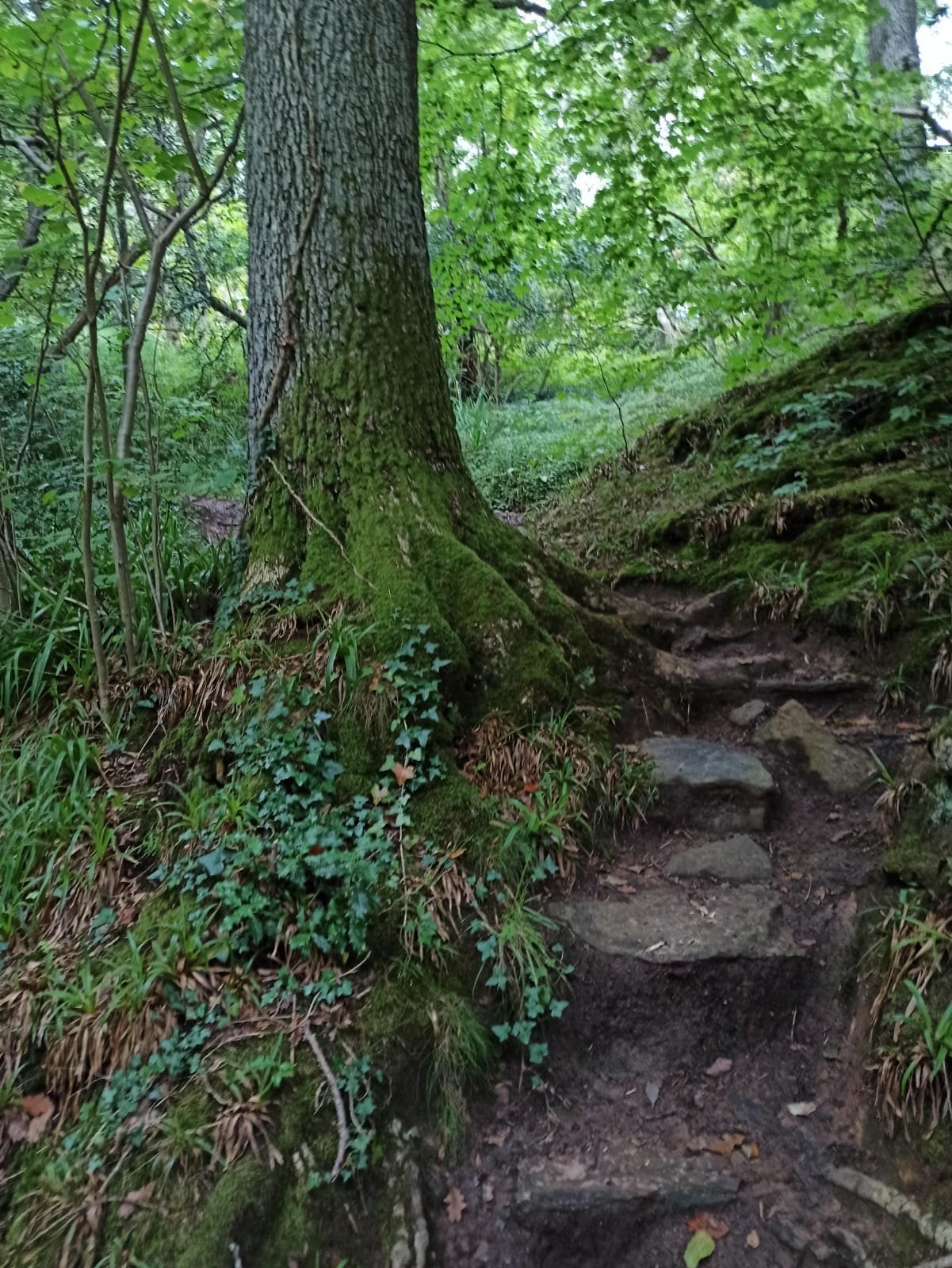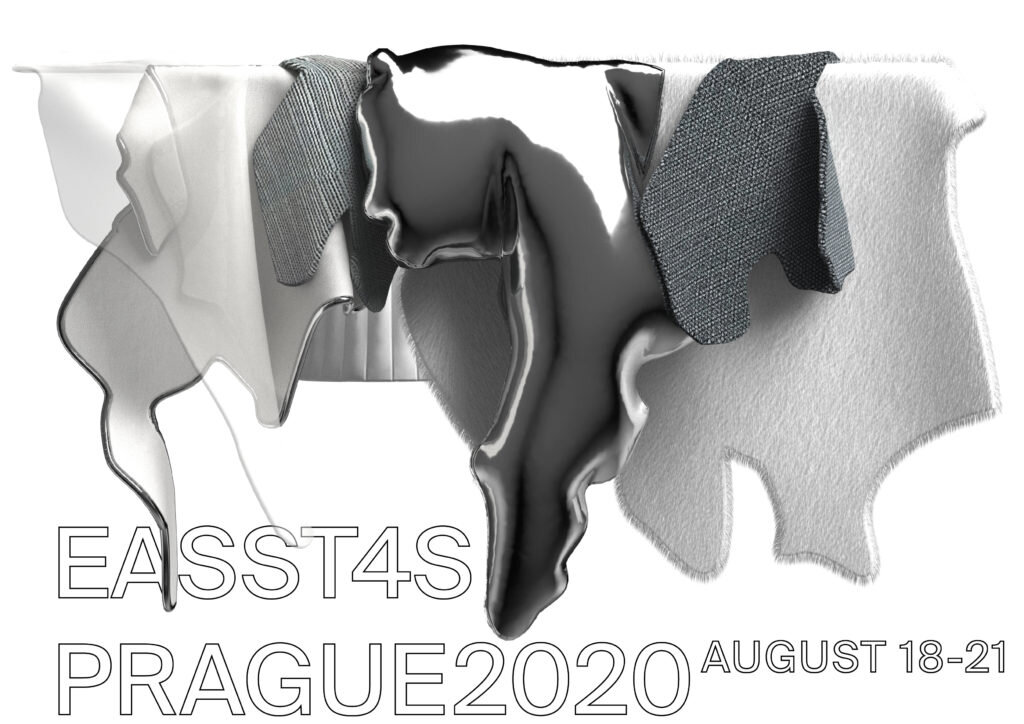
Upcoming events.

We Are Not Separate From the Soil
Ever wondered about the social life of soil? Soil supports ecosystems of all kinds, hosts dazzling microbial diversity and can even give us new ways to think about research.
In this practical workshop participants will be invited to engage creatively and anthropologically with soil as a more-than-human substance through making 'found poems', creating soil chromotographs and inviting new perspectives through microscopy. In doing so, the workshop aims to provide opportunities for thinking together about soil as an overlooked but vital substance: not only for nourishing our ecosystems, but also for provoking new ways of imagining research and collaboration.
Priority for the workshop will be given to recent anthropology students but is open to all who are interested in attending. Places are limited.
https://www.eventbrite.co.uk/e/we-are-not-separate-from-the-soil-tickets-422916333137

Colloquium - Reimagining AMR Beyond The Military Metaphor: Reflections on Covid-19 and AMR
This colloquium will draw together interdisciplinary expertise in AMR from across Edinburgh to discuss how language shapes, influences and organises understandings and responses to human microbe relationships. In 2019, the Beyond Resistance Network brought together delegates from 25 disciplines including economists, artists, anthropologists and historians, eco-psychologists, cognitive linguists, literature specialists, physicists, political science, alongside clinicians, public health physicians, epidemiologists, microbiologists, and vets for a half day workshop to discuss the impact of the military metaphor for conceptualising and responding to antimicrobial resistance. In this colloquium, we revisit this discussion to understand and critically reflect on the impact of the Covid-19 Pandemic on questions of language, expertise, framing and response to contagion and microbial life.
In 2019, the colloquium was organised around a provocative statement designed spotlight language used in AMR discourse. The colloquium will catalyse collaboration across the AMR forum, invigorate interdisciplinary thinking and enable Edinburgh to contribute to an important debate at a critical moment. As the world begins to think about a post-pandemic future, what does this mean for more than human challenges such as AMR and the intersections of drug resistance, food security, zoonosis and climate change.

Language Of Research: AMR and Social Science
TIME AND DATE TBD
The purpose of this workshop is to provide a general overview of the methods concepts and questions used by social scientists in AMR research, and to highlight Edinburgh social science research in this area. The workshop is designed to break down the ‘silos’ of expertise in AMR research in Edinburgh and address the challenges of working within and between different research languages, methods and concepts of the social and natural and clinical sciences. The workshop aims to generate an understanding of the kinds of methods, tools and questions used by social scientists in order to further greater understanding of the role of social science and how this can be applied to interdisciplinary work. There will then be opportunities to discuss active ongoing research within the social science AMR community and how the AMR Forum might find ways to foster future interdisciplinary collaboration. The session will end with a brief networking opportunity.

Antimicrobial Resistance, Art, and Anthropology
Hosted by the University of Edinburgh Social Anthropology Society.
TICKETS: Register for free here
Join Medical Anthropologist at UOE Iona Walker for a journey into the relationship between medicine, science, and anthropology! Explore how antimicrobial resistance can be expressed and grappled with creatively through the medium of art and viewed through an anthropological lens.
Open to all! Students of all ages, academics, and non-students. Open to non-professionals and specialists! No need for a background in science, anthropology, or art.
There will be opportunities to experience and make creative responses to Iona's talk during the workshop. We welcome any creative responses! There are no limits, but some examples could be poems and illustrations.
An ideal workshop for anyone interested in anthropology, ethnography, art, artistic and creative responses, medicine, biology, human geography, international relations and the interdisciplinary relationships between anthropology and medicine.

Situating antimicrobial resistance (AMR): locations, spaces and borders at the EASST/4S conference 18-21st August in Prague
‘Antimicrobial resistance’ (AMR) is increasingly figured as an international priority through activities by the World Health Organisation and European Union among others. A prominent slogan ‘bacteria do not respect borders’ also draws attention to the apparently global nature of the issue. In response, this panel calls for papers that situate the policies and practices of AMR – exploring how the issue and responses are framed in different institutions and locations; in different national contexts though stewardship or infection control policies and regulations; and in border regions and spaces like airports. Papers might address emerging practices for screening, surveillance, quarantine and antibiotic use in different contexts and cultures, or experiences of groups including ethnic minorities, immigrants and those with different infections.
In ethical terms it is suggested that AMR is often understood as a site of tension between the individual needing treatment in the short term and a collective interest in preserving antibiotic efficacy in the longer term, but this does not hold for all situations. In clinical medicine as in other social practices people do not have equal abilities to claim and receive treatment. Others become the focus of additional surveillance and control through the notion of potential risk. When and how are people’s vulnerabilities acknowledged or ignored in relation to antibiotic use or stewardships, and which groups are more affected by interventions? We invite scholars to discuss how AMR is shaping actions in specific locations, and how multiple framings co-exist or relate below the appeal to international standards or solutions.
Catherine Marijke Will, University of Sussex; Alena Kamenshchikova, Maastricht University; Cristina Moreno Lozano, University of Edinburgh; Iona Walker, University of Edinburgh

SoMA Symposium: Uncertain Futures, Uncanny Present(s)
COVID-19 has overwhelmed global consciousness. sparking criticisms about the nature of our healthcare infrastructures and economies, the production of global metrics, our understandings of what constitutes ‘good’ care, and cultural notions of moral responsibility, preparedness and risk. What is foregrounded, and what becomes hidden from view, forgotten, or absent from discussions, practices and experiences surrounding COVID-19?

BEYOND RESISTANCE COLLOQUIUM: Reimagining AMR: Borders, Boundaries and Beyond the Human
“It has been said that good fences make good neighbours. But what happens when neighbours are intertwined so closely with us that they constitute our very body. In the ‘post-antibiotic era’ how can we locate, create and understand bodily boundaries, navigate borders at micro and macro level and incorporate non-humans to live microbially entangled lives. Work on microbiomes, global public health, historical narratives, climate change, One Health, immigration, alternative antibiotic therapies, economics and diagnostics amongst a host of others all attempt to answer these questions. We invite voices from and between these perspectives – especially those which are often missing from mainstream discourse. What are the assumptions, agendas and asymmetries involved in this work and how can a critical multidisciplinary approach work to dissolve, create and enable new kinds of fences for a post antibiotic world?”
The colloquium was held by the BEYOND RESISTANCE Network on the 10th of January 2020 at the University of Edinburgh, organised by Iona Walker of the Edinburgh Centre for Medical Anthropology (EdCMA) and generously supported by EdCMA and Edinburgh Infectious Diseases (EID). This year’s theme ‘Re-imagining AMR: borders, boundaries and beyond the human’ builds on the previous BEYOND RESISTANCE colloquium which identified this as a key area for interdisciplinary engagement.
A keynote from artist Dr Louise Mackenzie began the day reflecting on her work with e.coli as lively material, manifesting in works that explore themes of production, waste, the posthuman and nonhuman (Mackenzie, 2020). From there we reflected on the provocation in ‘pods’ before joining a group discussion. Key themes which emerged included: navigating vulnerability in patient experience, how AMR encourages us to reflect on our ecological obligations in light of climate emergency, the porous or leaky body, reimagining the institution for interdisciplinary work and finally our microbial imagination and what implications this has for medicine and politics. A full report is intended for publication in the coming months.

Resist or Coexist? An Exploration of Antimicrobial Resistance
In ASCUS Lab, led by medical anthropologist Iona Walker of the BEYOND RESISTANCE Network, we will encourage imaginative and creative thinking around AMR and our relationship with microbes.
Instead of a nihilistic approach to AMR, we will celebrate our connectedness to microbes and foster excitement wonder and respect for our tiny inhabitants within us and all around us.
Get hands-on and codesign textiles with ASCUS Lab’s pigmented bacteria. Challenge them with everyday microbial agents such as ginger, bleach, turmeric, and soap. Explore resistance for yourself and ask how we can ‘coexist’ and live ‘beyond resistance’.

Our Tiny Non-Humans: Meet the microbes that shape our world.
The events were entitled Our Tiny Non-Humans: Meet the microbes that shape our world. They were held at the ASCUS Art & Science labs in Summerhall, and brought together participants from a (huge) range of different backgrounds including gastronomy, biomedical sciences, art, literature and beyond. In addition, as one of the few Festival of Creative Learning events open to the entire Edinburgh community, we encouraged curious members of the general public to attend, resulting in a lively and diverse crowd.
Through discussion and hands-on activities attendees learned about why some bacteria are becoming difficult to treat with antibiotics, why antimicrobial resistance remains a major global challenge in medical research and how the problem relates to our world today.
The workshop was led by medical anthropologist Iona Walker of the BEYOND RESISTANCE Network, architect Nikoletta Karastathi and clinician and researcher Dr Zafer Tandogdu from Edinburgh’s Western General Hospital.

BEYOND RESISTANCE 2019 Colloquium: Reimagining AMR: Beyond the Military Metaphor
The 2019 Beyond Resistance Colloquium was held at the Edinburgh Centre for Carbon Innovation on the 11th of January where researchers, practitioners and experts from over 25 disciplines gathered in response to the provocation:
The language we use to frame our relationship with microbes has profound effects. ‘Crises’ are imminent with the rise of microbial resistance; we face a looming ‘apocalypse’ as the antibiotics fail to work; we ‘fight’ disease, and structure public health campaigns around ‘military style’ campaigns. As we divide microbes into those that are friendly, and those ‘superbugs’ that are ‘enemies’ we barely think of the impact that this language has. Yet we as humans we are comprised of viruses, bacteria and fungi such that our bodies are inseparable from these. This way we understand human-microbe relations has had profound effects; but as the antibiotic era draws to an end, we now need new ways of reconceptualising our relationship with microbes.
Through a series of presentations addressing language and microbes from a diverse range of disciplines – social sciences, the arts, microbiologists, veterinary scientists, ecologists, economists, philosophers – the discussion centred around how we frame our understanding of human-microbe relations. Can we reimagine this relationship otherwise?